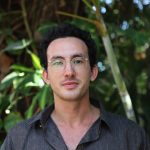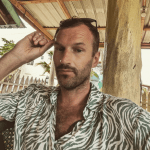Basic Income for Nature & Climate
Basic Income, Climate Change Mitigation and Biodiversity Conservation
Basic Income for Nature and Climate (BINC) is a new mechanism for funding biodiversity conservation and climate change mitigation activities. The BINC proposal combines core Basic Income (BI) principles with environmental goals, aiming to protect biodiversity and mitigate climate change while reducing social inequity. BINC offers regular payments to communities near or within critical conservation or climate areas to support livelihoods, and reduce their dependence on exploitative and unsustainable resource extraction. In order to protect ancestral practices, encourage and/or incentivise new sustainable uses of forest resources, whilst also enabling freedom when choosing alternative development pathways, we believe that new financial mechanisms are needed for the inhabitants of these regions. In this context, basic income could play a central role in enabling the sustainable management of critical ecosystems.
Why BINC? How does it work?
BINC is a people-led approach. It recognises that in order to achieve justice, a much greater redistribution of resources is needed between those who have historically taken more and caused more harm, and those who continue to suffer injustices arising from environmental exploitation. It can be framed as a form of compensation for the unpaid labour many rural communities devote to activities that contribute to conservation outcomes, on lands under their control. By reducing oversight, cutting bureaucracy, and bypassing intermediaries, BINC empowers local communities and streamlines funding. Unlike current and popular market-based instruments (MBIs), BINC is an instrument of social justice.
Outlook: Scaling up BINC for a just and sustainable future
While BINC is not a silver bullet, it is by far the most scalable mechanism to address the polycrisis of climate breakdown, biodiversity loss and inequalities. BINC is part of a broader and more comprehensive programme for transformative change that also includes extractive industries encroaching on local conservation spaces and the establishment of improved governance frameworks and policies to enable those conditions. These must include the formalisation of land and tenure rights for Indigenous Peoples and Local Communities, since many of them live on lands that already contribute to conservation outcomes and/or are legally protected and excluded from land conversion.
The next step is to learn from existing BINC projects and use this learning to replicate BINC projects in other sites and at greater scale. This should be done in collaboration with local partners, guided by transdisciplinary research integrating economic, ecological, and sociological methods. This approach will generate insights to adapt and improve projects while developing a scalable model and best practices. As we work to transform conservation and climate financing to promote equity and sustainability, we invite donors and partners to join us in pioneering this innovative approach by implementing pilot projects for a more just and sustainable future.
How could a global BINC program be funded?
A key challenge for BINC is securing sustainable funding without relying on global environmental markets. Researchers have estimated that funding BINC globally would likely cost between USD 351billion and 6.73 trillion annually depending on the number of recipients and level of payment. These sums are already well within the scope of what is projected to be needed to scale up global conservation and climate action in the future. It is estimated that between 1/3 and 1/4 of the world’s total wealth is hidden in offshore tax havens. Global subsidies for environmentally harmful activities such as fossil fuel and conventional agricultural production are estimated at USD 2.6 trillion per year. If even a small portion of these funds were directed to BINC, it could easily fund implementation of a substantial international programme. Concrete financing sources for BINC have been proposed, such as linking it to climate change mitigation through the concept of a Forest Carbon Dividend or a “Cap and Share” mechanism proposed by the Cap and Share Alliance.
How FRIBIS contributes
The BINC working group is a joint initiative between FRIBIS and researchers based at the Autonomous University of Barcelona (Spain), Florida International University (USA), Freiburg University (Germany), UIII – Indonesian International Islamic University (Indonesia), Wageningen University (the Netherlands) and York University (Canada), as well as development agency GIZ (Germany) and NGOs Cool Earth (Peru, UK), GiveDirectly (Germany, UK) and WCS (Cambodia).
Further research will be conducted at FRIBIS to explore the feasibility of various BINC pilots, in order to test impacts on livelihoods and nature. FRIBIS provides scientific expertise, financial support, and facilitates advocacy and policy dialogue of the proposed basic income scheme at the international level. The long-term goal of our team is to implement a multi-year BINC project at scale, using the expertise of the members that constitute our group.
Learn more about Basic Income for Nature and Climate here:
- Mumbunan S., Maitri, N.M.R., Tazkiana, D., Prasojo, A., Sihite, F., Nabella, D.M. (2021). Basic Income for Nature and Climate. On the first Basic Income proposal to conserve nature and combat climate change on the largest tropical island on Earth. Depok: Research Center for Climate Change Universitas Indonesia. (ISBN 978-602-60534-3).
- Schmidt-Pramov, F. (2021). A basic income for nature and climate in Tanah Papua. Berlin: GIZ. (Policy Brief).
- A webinar on the launching of the first Basic Income for Nature and Climate report and dissemination of findings can be found here [videos available in Indonesian only].
FRIBIS Team Coordinator

Contact: marcel.franke@vwl.uni-freiburg.de
Research Team

He lives in Jakarta, Indonesia




Transfer Team




Associated Members

